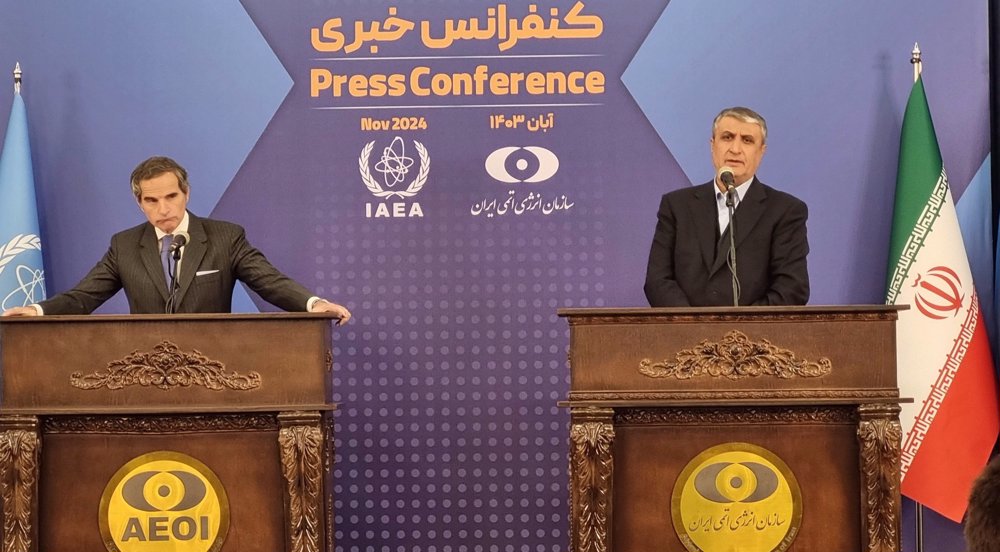The head of the Atomic Energy Organization of Iran (AEOI) has warned of “immediate response” to any resolution by the UN nuclear agency against the country’s peaceful nuclear program.
Mohammad Eslami made the remarks during a joint press conference with International Atomic Energy Agency (IAEA) Director-General Rafael Grossi in the Iranian capital Tehran on Thursday.
“Iran will respond immediately to any resolution opposing Iran’s nuclear program,” he said, stressing that the Islamic Republic will not shrink from pressure and will pursue its nuclear activities within the framework of its national interests.
The remarks came a day after Reuters reported that European countries are seeking a new anti-Iranian resolution at next week’s IAEA board meeting to increase pressure on Tehran.
Eslami said such a resolution would naturally establish Iran’s right to take countermeasures.
He added: “The key issue is that if the other side pursues a path of confrontation, settlement and chaos against Iran, both sides will face retaliation.”
“If the two countries choose a path of exchange, Iran will actively interact, but if they choose another path, Iran will make the necessary decisions.”
He also pointed out that Iran had always been on the path of exchange and fulfilled its obligations under the Joint Comprehensive Plan of Action (JCPOA) even before it was derailed by the United States.
In 2015, Iran signed the JCPOA with six countries around the world, proving to the world the peaceful nature of its nuclear program.
However, Washington’s unilateral withdrawal in 2018 and subsequent reimposition of sanctions on Iran left the deal’s future in limbo.
In 2019, Iran began lifting restrictions it had accepted under the JCPOA after other countries failed to meet their commitments.
Elsewhere in his remarks, Esulmai stressed that Iran’s nuclear program has been used as a pretext to impose harsh sanctions on the country.
He said that over the past two decades, countries opposed to Iran’s interests have assassinated scientists and sabotaged industries, while fabricating incidents and creating ambiguity over the country’s nuclear activities.
However, Iran today enjoys nuclear technology that is not borrowed, but built on endogenous research under the supervision of the IAEA.
Also during the meeting, Grossi was asked about Israel’s threat to attack Iran’s nuclear facilities, to which he replied: “That’s what I say about Iran…nuclear facilities should not be attacked.”



